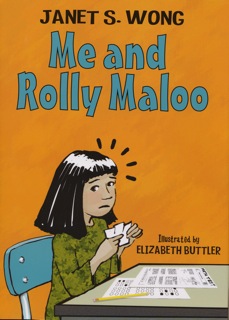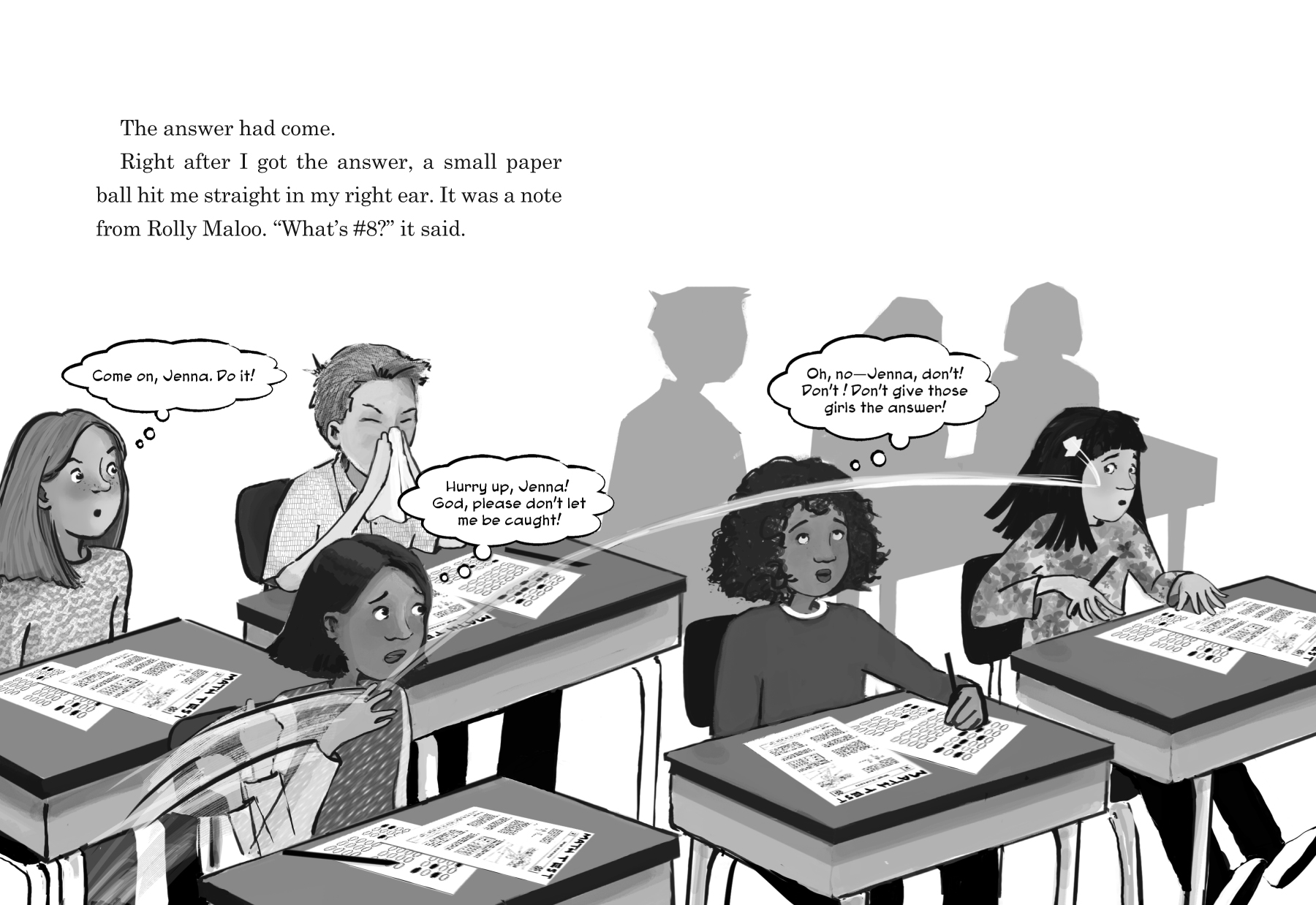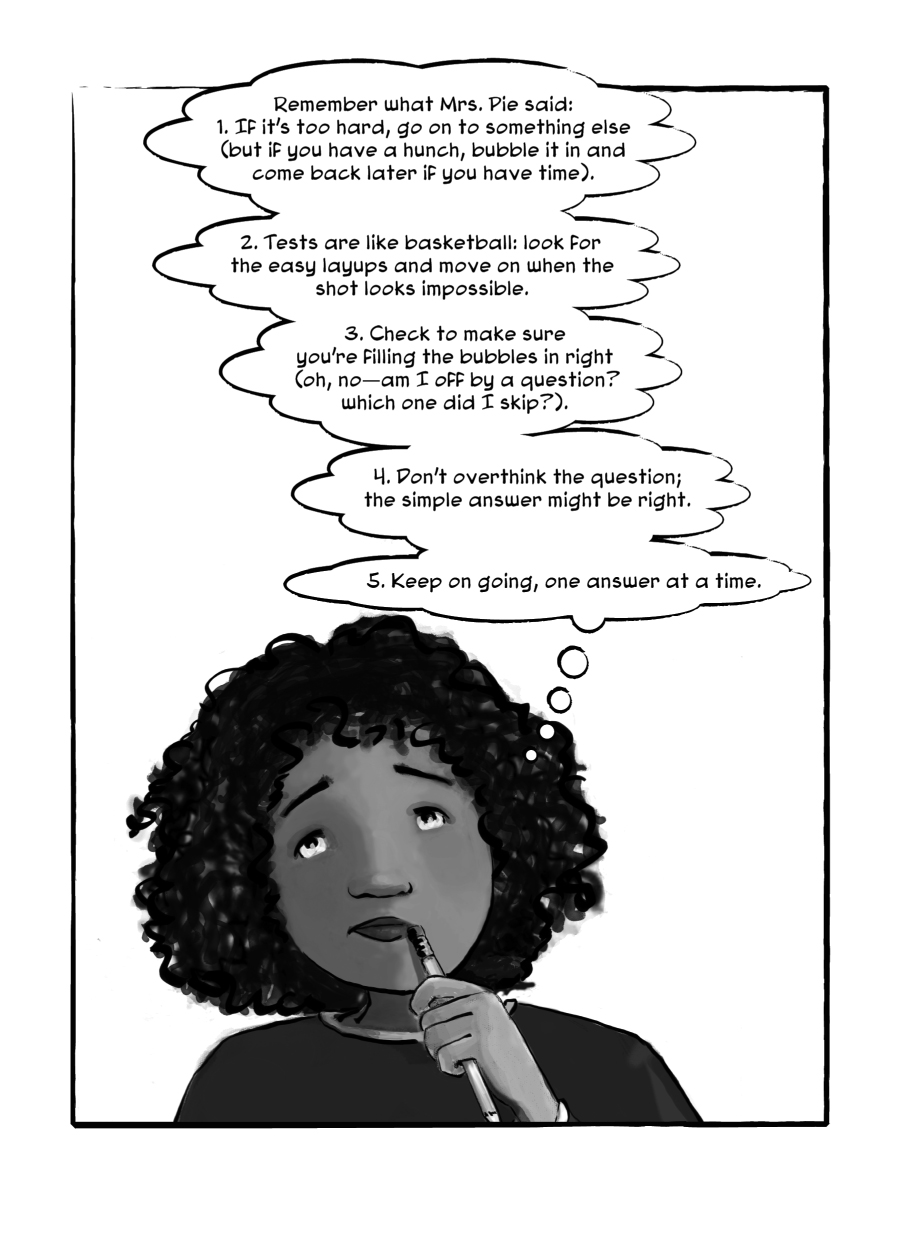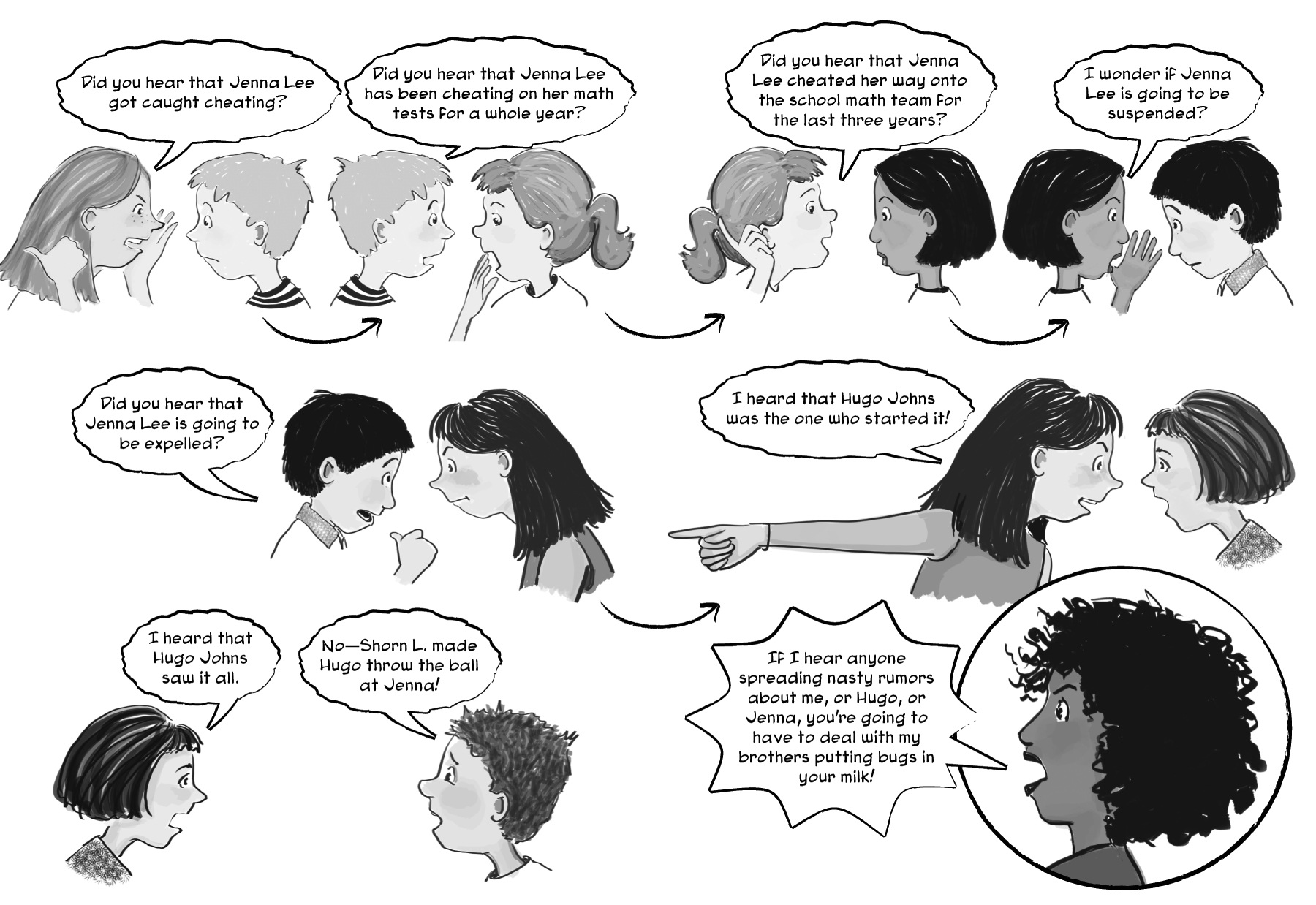Me and Rolly Maloo
—a Book Links Lasting Connections book
—a Horace Mann Upstanders Award Honor book
I wrote this book as an invitation for preservice teachers, teachers, administrators, parents, and children to discuss the many difficult topics we face in schools today, particularly:
—testing
—cheating
—the reasons behind cheating (pressure to do well)
—popularity and “true” friendship
This book is set in 4th grade, but I think it can be used as a read-aloud for 3rd and even 2nd grade. Kids might not be cheating at that young an age, which is exactly why that is the perfect time to talk about these issues. Let’s stop cheating before it starts!
ISBN: 978-1-58089-159-2
Download and print a Classroom Discussion Guide!
“This innovative chapter book from a seasoned author delivers two parallel stories. During a fourth-grade math test, popular Rolly Maloo passes notes to math whiz Jenna Lee, seeking answers to tough questions. Interspersed with Jenna’s straightforward account of a common dilemma is a sophisticated tale in graphic-novel format that places Jenna’s story in a broader context. [T]his moral fable opens an important cultural conversation about privilege, a rarity in stories for children.” —Kirkus Reviews
“[T]he prose narratives, along with the pencil and digital illustrations that are sometimes laid out in comic-style panels, nicely express the characters’ thoughts and feelings, alone and in the classroom. The story culminates during a math test when Rolly throws a small paper ball to Jenna with a question (“What is #8?”), and Jenna overcomes her hesitation and throws back the answer. The teacher is busy reading her email, but other kids see what is happening. Or do they? Rumors fly, and in one stand-out picture, trendy mothers babble on their cell phones in the supermarket with wild stories about Jenna’s guilt. Middle-grade readers will be easily caught up in the cheating drama.” —Booklist
“Wong understands well the social pressures of being the smart kid whose single mother works too hard for too little, who doesn’t have a whole lot of friends, who never gets to sit at the popular table during lunch. Fourth grade can be quite a battleground, but Wong makes sure that Jenna Lee eventually figures out how to navigate the challenges with the help of real, true friends. We should all be so lucky … in any grade, at any age!” —Smithsonian Book Dragon
“Wong and Buttler thoughtfully explore thorny social and ethical dynamics in this graphic novel/prose hybrid. At home with her single mother, who stuffs envelopes to make ends meet, fourth-grader Jenna is shocked when popular girl Rolly Maloo telephones her. Thanks to an opening cartoon in which Rolly contemplates calling Jenna (“Not that she’s not nice. But like Mom says, she’s odd”), readers will already know what Jenna suspects: it’s too good to be true. Rolly, at the urging of a friend, is seeking help for a math test, and Jenna gets caught passing back a note to Rolly during a test the next day. Jenna knows cheating is wrong, but her rationalizations for helping Rolly ring true: “Maybe helping Rolly Maloo with a math answer would be called charity. And instead of calling her a cheater, maybe you could call her someone who is smart enough to ask for help.” Buttler’s b&w illustrations adeptly broadcast characters’ emotions and substantially broaden the story’s scope by revealing that adults (the students’ parents and teachers) can be as cliquish and conflicted as the children.” —Publishers Weekly
“There is plenty to think about in this slender volume, with its fictional commentary on the nature of rumor, the dilemmas of social envy, and the politics of elementary school. Wong presents it all with her characteristically light touch and adds a sweet touch of pie at the end for good measure.” —Children’s Literature
“Cheating makes for an engaging subject, but beyond that, many complex issues are addressed here with honesty, age-appropriateness and aplomb: economic class prejudice, the pressures and impact of high-stakes testing on school communities, the difference between tattling and protecting, and the effect of parental gossip. . . it’s sure to create conversation, making it a a stupendous choice for book clubs and classroom sets.” —The PlanetEsme Plan




